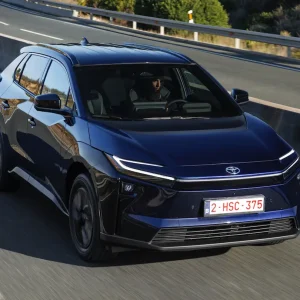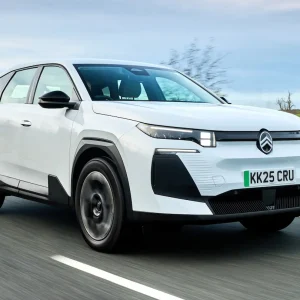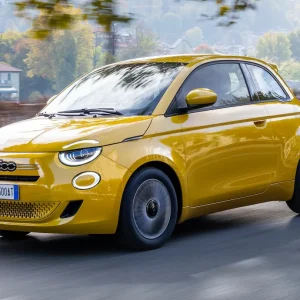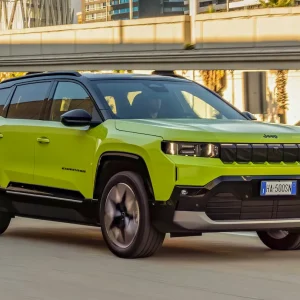Six years after it was launched, the third-generation Toyota Yaris has been given a second refresh. It comes with new equipment, mechanical improvements and a new petrol engine. The diesel option has been dropped and the Yaris is now only available with five doors.
The front end gets mildly tweaked headlights, while at the back there’s a new bumper and redesigned rear lights, which now stretch horizontally across the tailgate. Inside, the dash remains generally unchanged but is now offered with new colour options. Meanwhile, all versions, other than the entry level model, come with a new 4.2in colour TFT screen in the instrument binnacle.
Engine-wise, a new 1.5-litre petrol powerplant is introduced – which is also used in the hybrid we’re testing here – alongside the retained 1.0-litre petrol engine. With the four-cylinder engine paired with an electric motor, it manages 100hp and 111Nm of torque. Key figures include a 0-62mph time of 11.8 seconds, claimed economy of 85.6mpg (combined) and CO2 emissions of 75g/km – impressive stats that few in the sector can match.
Driving on electric-only mode is easier than ever, and with some well-judged and restrained throttle inputs the combustion engine can be kept dormant for much of the time.
On our test route we managed 63% of our time and 42% of our distance in electric mode only, returning 68.9mpg over ironing board-flat roads.
However, the electric motor, by today’s standards, isn’t the quietest and generates quite a hum – think 4am milk float without the noise of crashing bottles. As the petrol engine steps in, the transition is seamless, with only the noise of the engine to signify any change. That new engine, though, isn’t particularly quiet, especially under harder acceleration.
Performance feels sluggish, but there’s an even spread of power across the rev-range.
The previous Yaris fell down for its poor ride quality and this refresh has done little to correct this. The car’s suspension fails to deal with the smallest road imperfections, creating a fidgety ride, even on what appear to be wrinkle-free surfaces.
Its steering is accurate and responsive and is light to the touch, though, meaning it’s easy to navigate around town. Front-end grip is ample, too. While Toyota will tell you that much has been done to improve refinement, when wind noise is significant at just 60mph, and when coupled with the vocal petrol engine, we’d say that more work is needed.
Inside there’s a slightly tweaked design to the infotainment system, but it’s unimpressive and feels dated. Some new features, such as the aforementioned new dash colour options and the 4.2in TFT screen in the instrument cluster have also been added alongside a trip computer, multimedia systems and new safety features.
The interior remains spacious, feels robustly contructed and offers enough seat and steering wheel adjustment combined with ample headroom to ensure most should find a comfortable driving position.
In the back of the Yaris, headroom is decent, while both leg and knee room are good. The 60/40-split folding rear seats and 286-litre boot with adjustable floor enhance practicality too.
You can buy the Yaris in six trims, and all cars come with the Toyota Safety Sense pack that includes a pre-collision system, lane-departure alert, road-sign assist and automatic high beam. All hybrid models, which currently account for 42% of all Yaris sales, get automatic air conditioning and projector headlamps as standard too.
However, although these latest round of updates improve the Yaris, they don’t do enough to fend off newer (and cheaper) competition from the likes of the Nissan Micra, Citroen C3 and Mazda 2, and with an all-new Ford Fiesta arriving later in the year, the news gets worse for Toyota.
Finally, a Suzuki Baleno mild-hybrid offers more space, a better ride and as much technology for much less money.
Toyota Yaris 1.5 VVT-I Hybrid Bi-Tone |
| P11D £19,790 |
| On sale April 2017 |
| Fuel consumption 85.6mpg |
| CO2 (BIK band) 75g/km (13%) |
| BIK 20/40% per month £43/£86 |
| Boot space (min/max) 286 litres |
| Engine size/power 1,497cc/100hp |





